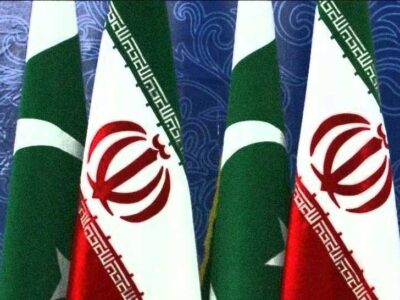Sara Rizvi
Central Asia is an important region due to its energy resources and strategic location. Therefore, it has been a center of attention for three major world powers, namely Russia, China, and the United States. This means that great power competitions will significantly shape the environment in the said region. Hence, it is important and instructive to understand how and why these powers are involved in Central Asia.
Given that Central Asian Republics (CARs) were part of the Soviet Union before its disintegration, Russia has deep historical, cultural, and political roots in this region. It is important for Russia in terms of security and the retention of hegemony in its backyard. Russia has maintained its influence through regional organizations like the Eurasian Economic Union (EEU) and the Collective Security Treaty Organization (CSTO). EEU members include countries like Kyrgyzstan, Kazakhstan, Belarus, Armenia, and Russia. The main purpose of EEU is to increase economic cooperation between these states. On the other hand, the main idea behind establishing CSTO is to build military alliances with these states and have mutual defense understandings. It includes the sharing of different military capabilities and expertise among its member states. Although Russia was the main actor in Central Asia for the past several decades, China has increased its influence in this region, entering into various trade agreements with CARs. China traded more than $ 70 billion with Central Asia last year. Moreover, it is establishing a strong base in the region through the Belt and Road Initiative (BRI) and the Shanghai Cooperation Organization (SCO). BRI is a project that will connect China to the Middle East and Europe, with two of its six corridors passing through Central Asia. As for SCO, it has given China more diplomatic cushion in the region. This is partly evidenced by China’s mediatory efforts in Afghanistan.
The U.S. is also an important actor in Central Asia despite the fact that its influence and footprints there are less than those of Russia and China. Until 2014, it had military bases in CARs, giving it a degree of clout there. Perhaps these bases provided Washington with an opportunity to project some power in Central Asia as, in the past, the U.S. used them for operational reasons. Even today, the U.S. is exploring options to use bases in Central Asia for military purposes. This region is also important for the U.S. because of its geopolitical competitions with Russia and China. One strategic event that the U.S. thinks will impact Central Asia is the Russo-Ukraine conflict. While the said conflict has somewhat distracted Russia from the region, allowing China to expand its footprint there, it has not reduced the importance that Russia attaches to CARs. However, the U.S. is looking to drive a wedge between Russia and CARs. This is evidenced by the fact that the US has also signed trade deals with Central Asian states for oil and gas imports. Further, last year, the U.S. invested $25 million in Central Asia. Given that CARs happen to be Russia’s sphere of influence, it is obvious that it will be perturbed by U.S. rather subversive role.
In fact, China and Russia will both resist U.S. efforts to challenge the existing order in Central Asia. Russia and, to an extent, China will want CARs to remain dependent on them for their security and economic growth. While this will give more agency to Moscow and Beijing, it will make the situation all the more challenging for Washington.
Therefore, the U.S. will be confronted by China and Russia who have decided upon a kind of a division of labor in Central Asia. This has become a more pronounced phenomenon in the wake of the war in Ukraine. Notably, since the outbreak of the said war, China and Russia have solidified their political and economic relations, as evidenced by a healthy bilateral trade volume.
All this points to the fact that, in the current situation, it is in the best interest of Russia and China to protect the status quo in Central Asia. This does not mean that competition over hegemony in Central Asia between Russia and China has ended. That being said, it is important and strategically expedient for them to steer clear of hurting each other’s core interests in the region. Should China and Russia openly confront each other in Central Asia, the U.S. could sense an opportunity to upset the current order in the region. Such an eventuality, it must be stressed, will not be good news for both Moscow and Beijing.
Sarah Rizvi is a BS Social Sciences’ student in the School of Integrated Social Sciences (SISS), University of Lahore.






Comments